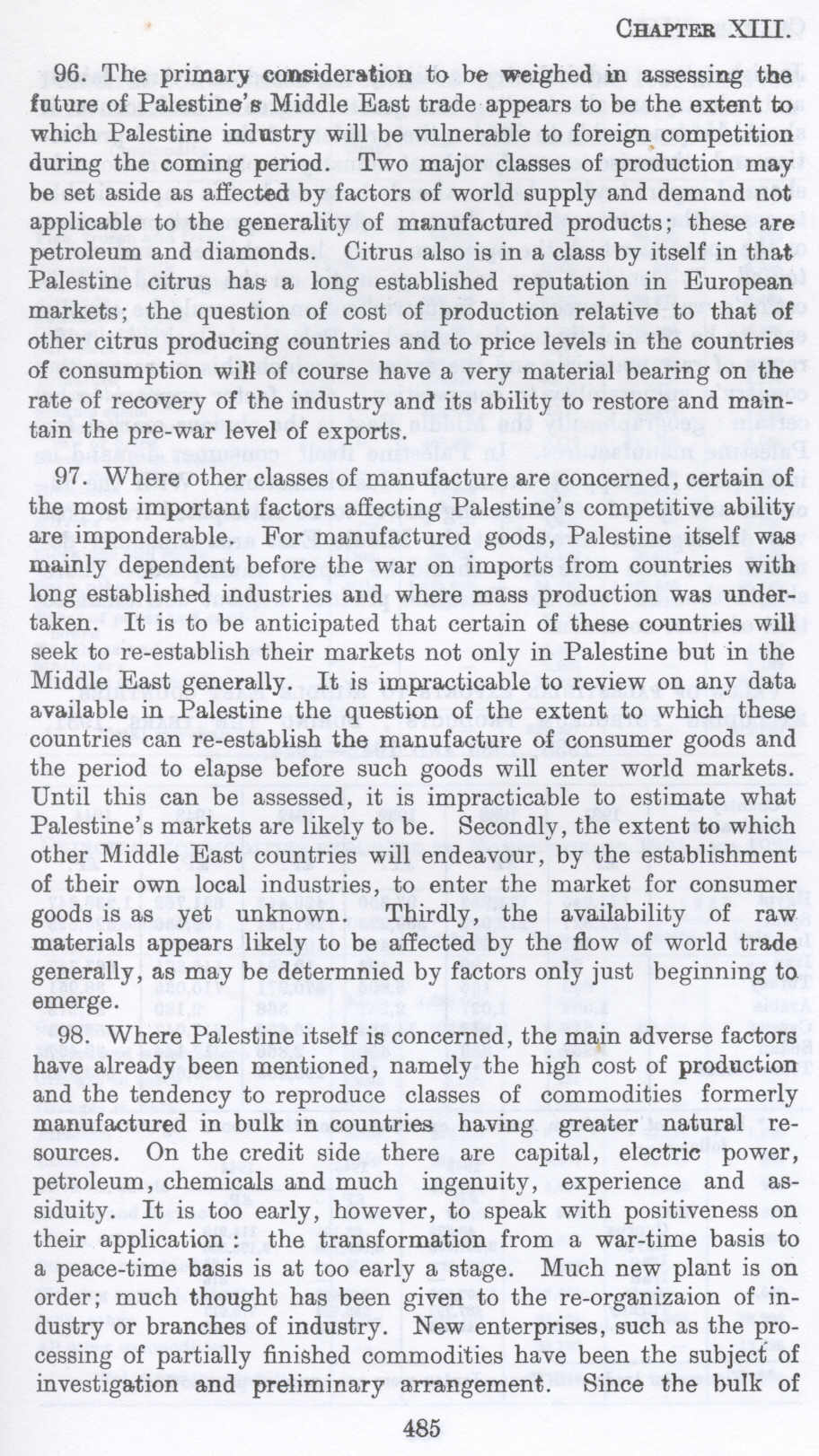| Prev | Next |  |
| Prev | Next |
| PalestineRemembered | About Us | Oral History | العربية | |
| Pictures | Zionist FAQs | Haavara | Maps | |
| Search |
| Camps |
| Districts |
| Acre |
| Baysan |
| Beersheba |
| Bethlehem |
| Gaza |
| Haifa |
| Hebron |
| Jaffa |
| Jericho |
| Jerusalem |
| Jinin |
| Nablus |
| Nazareth |
| Ramallah |
| al-Ramla |
| Safad |
| Tiberias |
| Tulkarm |
| Donate |
| Contact |
| Profile |
| Videos |
British Mandate: A Survey of Palestine: Volume I - Page 485 |
Disclaimer
The above documents, article, interviews, movies, podcasts, or stories reflects solely the research and opinions of its authors. PalestineRemembered.com makes its best effort to validate its contents.


Post Your Comment
*It should be NOTED that your email address won't be shared, and all communications between members will be routed via the website's mail server.
96. The primary consideration to be weighed in assessing the future of Palestine's Middle East trade appears to be the extent to which Palestine industry will be vulnerable to foreign competition during the coming period. Two major classes of production may be set aside as affected by factors of world supply and demand not applicable to the generality of manufactured products; these are petroleum and diamonds. Citrus also is in a class by itself in that Palestine citrus has a long established reputation in European markets; the question of cost of production relative to that of other citrus producing countries and to price levels in the countries of consumption will of course have a very material bearing on the rate of recovery of the industry and its ability to restore and maintain the pre-war level of exports.
97. Where other classes of manufacture are concerned, certain of the most important factors affecting Palestine's competitive ability are imponderable. For manufactured goods, Palestine itself was mainly dependent before the war on imports from countries with long established industries and where mass production was undertaken. It is to be anticipated that certain of these countries will seek to re-establish their markets not only in Palestine but in the Middle East generally. It is impracticable to review on any data available in Palestine the question of the extent to which these countries can re-establish the manufacture of consumer goods and the period to elapse before such goods will enter world markets. Until this can he assessed, it is impracticable to estimate what Palestine's markets are likely to be. Secondly, the extent to which other Middle East countries will endeavour, by the establishment of their own local industries, to enter the market for consumer goods is as yet unknown. Thirdly, the availability of raw materials appears likely to be affected by the flow of world trade generally, as may be determined by factors only just beginning to emerge.
98. Where Palestine itself is concerned, the main adverse factors have already been mentioned, namely the high cost of production and the tendency to reproduce classes of commodities formerly manufactured in bulk in countries having greater natural resources. On the credit side there are capital, electric power, petroleum, chemicals and much ingenuity, experience and assiduity. It is too early, however, to speak with positiveness on their application : the transformation from a war-time basis to a peace-time has is is at too early a stage. Much new plant is on order; much thought has been given to the re-organizaion of industry or branches of industry. New enterprises, such as the processing of partially finished commodities have been the subject of investigation and preliminary arrangement. Since the bulk of
Page 485